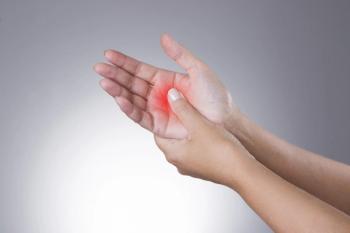
Researchers review current knowledge on the management of flares in atopic dermatitis, including treatment and unmet needs.

Matthew is an associate editor for The American Journal of Managed Care® (AJMC®). He joined AJMC® in 2019 and creates content for Medical World News®, a 24-hour online program developed MJH Life Sciences® focusing on pressing topics within managed care, as well as the nonwork-related activities of health care stakeholders.
He has a BA in journalism & media studies and economics from Rutgers University. You can connect with Matthew on LinkedIn.

Researchers review current knowledge on the management of flares in atopic dermatitis, including treatment and unmet needs.

Psoriasis Area and Severity Index scores indicated that patients with moderate-to-severe psoriasis had improved skin clearance when treated with risankizumab compared with secukinumab treatment.

Lower health care utilization was shown in patients with chronic rhinosinusitis, with and without nasal polyps, who had steroid-eluting implants vs those who did not in the 18 months following endoscopic sinus surgery.

Patients with psoriasis who experienced secukinumab secondary failure did not require switching after experiencing significant improvement of daily functioning and quality of life when given a combination rescue therapy.

Patients with atopic dermatitis (AD) treated with dupilumab showed reduced hospitalization rates and shorter duration of AD-related hospitalizations vs those treated with control therapies.

Mepolizumab was found to reduce nasal polyp size and nasal obstruction in patients with chronic rhinosinusitis with nasal polyps regardless of the presence of potentially exacerbating comorbidities.

On this episode of Managed Care Cast, we speak with Michael Sun, a medical student at the Pritzker School of Medicine at the University of Chicago, who served as first author of a Health Affairs study showing that race and bias were significantly associated with negative patient descriptors in the electronic health record.

Findings presented at the 2022 ASCO Gastrointestinal Cancers Symposium showed no significant differences in tissue and plasma genomic profiles of patients with early-onset and late-onset colorectal cancer, but a greater enrichment of the BRCA1 and PTEN mutations were noted in the tissue of those with early-onset disease.

Patients with chronic rhinosinusitis with nasal polyps were found to benefit more from the combination of endoscopic sinus surgery plus medical therapy vs medical therapy alone, although the minimal clinically important difference was not met.

Edward W. Cowen, MD, MHSc, senior clinician and acting branch chief, Dermatology Branch, National Institutes of Health, speaks on cytokines involved in the pathophysiology in pustular psoriasis and off-label therapy use.

Patients with atopic dermatitis were associated with significant economic burden primarily driven by outpatient visits and pharmacy use, which increased with disease severity.

The frequency of several mutations that inhibit response to tyrosine kinase inhibitors and tend to lead to increased disease severity was elevated in Chinese patients with non-small cell lung cancer.

Patients with severe chronic rhinosinusitis with nasal polyps achieved significant improvements in health-related quality of life (HRQOL) and general health status with dupilumab treatment after 52 weeks.

Incidence of infectious diseases, skin infections, and systemic antibiotic exposure were all associated with the development of atopic dermatitis among infants and young children.

Patients with psoriatic disease and dermatologists reported their preferred strategies to improve cardiovascular disease risk management, with a specialist-led model of care touted by both groups.

Patients with comorbid psoriasis and psoriatic arthritis exhibited significantly higher rates of depression and anxiety vs those with psoriasis alone, whereas lifetime suicidality prevalence was not different between the 2 groups but still heightened compared with the general population.

An increase in the use of comprehensive genomic profiling among patients with advanced non–small cell lung cancer (NSCLC) was associated with additional life-years gained and a low-cost budget impact.

Short-term exposure to several different types of air pollution was found to significantly increase disease severity in patients with chronic rhinosinusitis with nasal polyps.

Patients with atopic dermatitis were shown to be more likely to receive a COVID-19 diagnosis than the general population.

Patients with psoriasis exhibited superior efficacy outcomes when treated with ultraviolet (UV)-based phototherapy plus other adjuvant therapies vs UV monotherapy, with similar safety profiles shown for both approaches.
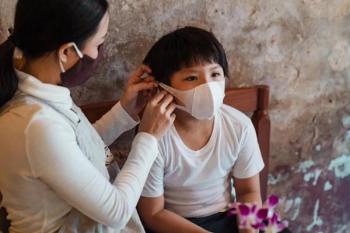
Children and adolescents with atopic dermatitis (AD) tended to have a higher number of delinquent behaviors than those without AD, including fighting, cheating on exams, and suspension.

The Biden administration announced a requirement for insurance companies and group health plans to cover the cost of at-home COVID-19 tests; critical staffing shortages are reported nationwide amid record surges in COVID-19 cases and hospitalizations; the first-ever successful animal-to-human heart transplant was announced.

Local immunoglobulin levels were found to be significantly higher in polyp tissue specimens, but not in the blood, of patients with nasal polyps.

A significant link was found regarding incidence of diabetes and chronic rhinosinusitis (CRS) with nasal polyps, whereas CRS without nasal polyps was not associated with diabetes.
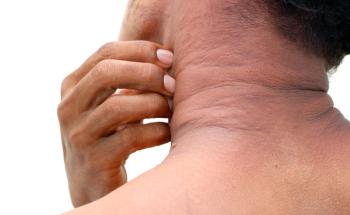
Patients with psoriasis who had comorbidities were associated with worse health-related quality of life and impaired treatment outcomes with conventional therapy, whereas biologic treatments maintained high efficacy despite presence of co-occuring conditions.

Human papillomavirus surrogate marker p16 was identified as a potential prognostic biomarker for standard-of-care immune checkpoint blockade therapy response in non-oropharyngeal head and neck squamous cell carcinoma.
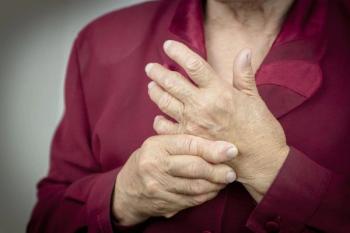
Korean patients with moderate-to-severe atopic dermatitis achieved and maintained markedly improved skin clearance with dupilumab treatment in a real-world setting, including in the face and hands.

School closures during the first wave of the COVID-19 pandemic in Switzerland were linked with longer sleep duration and improved health-related quality of life in high school students.

Treatment with the interleukin-36 inhibitor spesolimab was associated with improved lesion clearance vs placebo after one week, but also a greater incidence of infection and systemic drug reactions.
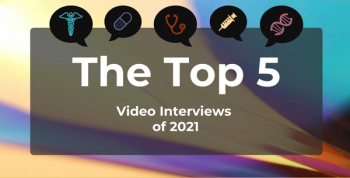
The top 5 most-watched video interviews of 2021 on AJMC.com addressed myths about COVID-19 vaccination, eye health, and dermatologic conditions, as well as the use of sodium glucose co-transporter 2 (SGLT2) inhibitors in the treatment of type 2 diabetes, chronic kidney disease, and heart failure.

259 Prospect Plains Rd, Bldg H
Cranbury, NJ 08512
© 2025 MJH Life Sciences®
All rights reserved.
